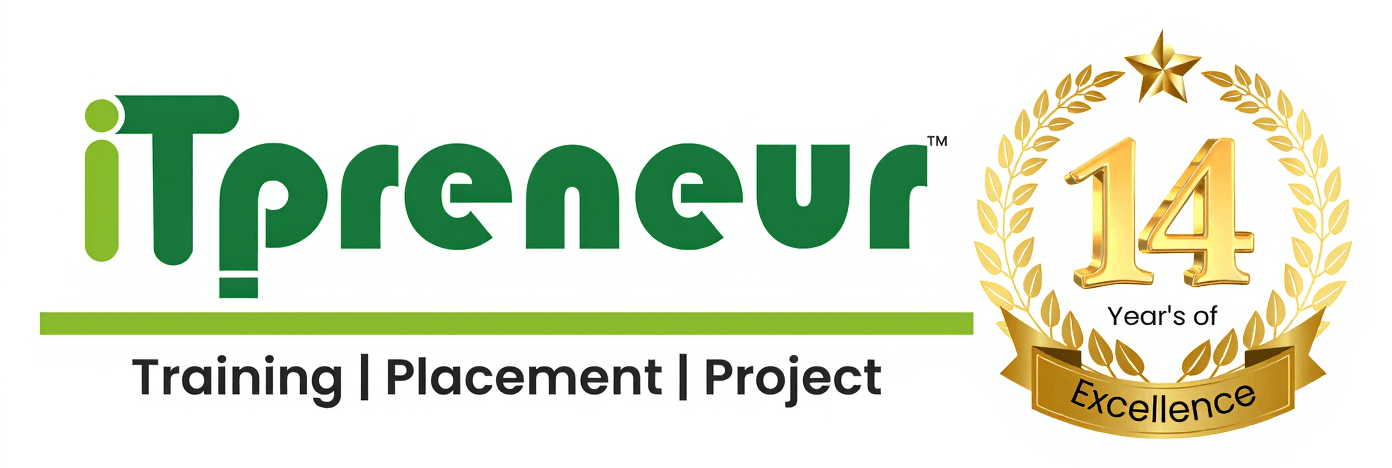Boost Your Interview Confidence: Secrets Even Top Trainers Don’t Tell You
Crack every interview with confidence – learn the secrets top trainers never reveal! Interviews can feel intimidating, no matter how skilled or prepared you are. Many candidates walk into an interview room with the right technical knowledge but still fail to make the right impression. Why? Because confidence, communication, and presence matter just as much as your skills. In this blog, we uncover lesser-known strategies that go beyond typical interview tips — the kind of secrets even top trainers often don’t share. 1. Confidence Is More Than Just Speaking Clearly Most trainers tell you to “be confident,” but what does that really mean? True confidence is not about pretending to know everything. It’s about staying calm even when you don’t know an answer. A polite response such as, “I don’t know the exact answer, but here’s how I would approach the problem,” shows honesty, problem-solving, and maturity. 👉 Pro Tip: Interviewers value authenticity over rehearsed answers. 2. Your Body Language Speaks Louder Than Words While preparing for answers is important, many forget that non-verbal communication makes a lasting impression. Even before you start speaking, your body language tells the interviewer whether you’re nervous, confident, or disinterested. 👉 Pro Tip: Practice in front of a mirror or record yourself to identify nervous habits. 3. Storytelling Beats Memorized Responses Most candidates prepare “perfect” answers, but interviewers can easily spot rehearsed lines. Instead, focus on storytelling — narrating real-life examples that highlight your skills. For instance, if asked about teamwork, share a short story of how you handled a group project or solved a conflict. 👉 Pro Tip: Use the STAR Method (Situation, Task, Action, Result) to keep your answers structured and impactful. 4. Dress for the Role You Want, Not Just the Interview Clothing is often overlooked but plays a big role in confidence. Dressing professionally doesn’t just impress the interviewer — it makes you feel more confident. Always dress slightly above the company’s culture standard. 👉 Pro Tip: Neutral colors, clean shoes, and tidy grooming go a long way. 5. Master the “First 60 Seconds” The first impression is often made in the opening minute of an interview. That’s when interviewers decide whether you’re confident and trustworthy. Start with a firm handshake (if culturally appropriate), a warm smile, and a crisp self-introduction that goes beyond just your name and degree. 👉 Pro Tip: Practice a 30-second “elevator pitch” that highlights your strengths, interest in the role, and enthusiasm. 6. Learn to Handle Stress Questions Gracefully Sometimes, interviewers deliberately ask difficult or tricky questions to test your reaction. The real test isn’t about your answer, but about how you handle the pressure. Staying calm, taking a few seconds to think, and responding logically shows emotional intelligence. 👉 Pro Tip: Instead of panicking, say, “That’s an interesting question — may I take a moment to think about it?” 7. End Stronger Than You Started Most candidates relax once the technical questions end, but the closing moments are your chance to leave a lasting mark. Thank the interviewer, ask one thoughtful question about the role or company, and express genuine excitement about the opportunity. 👉 Pro Tip: Always follow up with a short thank-you email. It shows professionalism and seriousness. Final Thoughts Interview confidence isn’t just about what you know — it’s about how you present yourself, how you handle challenges, and how you connect with the interviewer. By practicing these lesser-known strategies, you can walk into any interview room with clarity, calmness, and self-belief. Remember, companies don’t just hire skills — they hire people who can fit into their team, adapt to challenges, and grow with the organization. Mastering these secrets will set you apart from the competition and bring you one step closer to your dream job.
How Just 3 Months of Learning Can Change the Next 30 Years of Your Life

Have you ever taken a moment to consider how much your life can change in just 90 days?We often think that success requires years of effort, but in reality, focused learning of the right skills in a short amount of time can completely reshape your career, income, and confidence for the years ahead. Whether you’re a student planning for your future or a professional aiming for growth, dedicating just three months to a well-chosen learning program can open doors you never imagined. In this blog, we’ll explore how short-term learning can lead to long-term results and why starting now might be the best decision you’ll ever make. 1. The Power of Focused Learning Many people spend years waiting for the perfect moment to learn something new.The truth is — you don’t need years. When you fully commit to an intensive learning period, your brain adapts quickly, and in just months, you can accomplish what might take others years. Examples: Focused learning works because it eliminates distractions, sharpens your abilities, and builds momentum — turning knowledge into real-world results. 2. Why 3 Months Can Shape 30 Years Think about it — the skills you gain today will serve you well for many years to come.A short-term investment in yourself can generate a lasting return. Here’s why three months can truly be life-changing: Your 90 days of effort could be the reason you land your dream job, start a side business, or completely change your career direction. 3. Skills You Can Master in Just 3 Months If you pick the right course, you can be job-ready in 90 days. Some high-impact options include: 4. Real Stories, Real Transformations Countless students have changed their lives by investing just three months: These success stories prove that it’s never too late to start — what matters is your willingness to learn and take action. 5. How to Make the Most of Your 3 Months To maximize your results, follow these steps: Consistency is key. Even dedicating 2–3 focused hours daily can bring extraordinary results in 90 days. 6. The Urgency of Now — Why You Should Begin Today Every month you delay is a lost opportunity for growth, income, and development.The job market is evolving faster than ever — those who adapt swiftly are the ones who succeed. If you start today, in just 90 days you could be: Your future self will thank you for taking action now rather than waiting for “someday.” 7. Final Thought — Your Future Self Will Thank You Three months might seem like a short time, but the impact can last for decades.Imagine looking back and thinking,“I’m glad I started back then — it changed everything.” If you’re serious about building a future filled with opportunities, growth, and freedom, make the decision today. Your journey toward success begins with just one small step — and that step can be taken in only three months. Start your transformation today!Visit Our Official Website to explore high-demand, career-changing courses designed to make you job-ready in just 90 days.
Opportunities are Knocking – Don’t Miss Our Upcoming Drives!

Your dream job could be just one interview away. Join our exclusive placement drives and connect with top recruiters eager to meet talent like YOU. Seats are limited—secure your spot today and step closer to your career goals! In today’s fast-paced career world, opportunities rarely wait for anyone. The professional landscape is highly competitive, and the window to grab your dream role can be incredibly short. That’s why upcoming placement drives are such a golden ticket—giving you direct access to recruiters, industry leaders, and companies actively looking for talent. Whether you’re a fresher seeking your first break or a professional aiming for your next big leap, now is the time to act. Why Upcoming Drives Are a Game-Changer Placement drives aren’t just about interviews; they are about possibilities. When you attend one, you are essentially stepping into a concentrated hub of career opportunities where multiple companies gather to scout the best talent. Here’s why they matter: Who Should Attend? Upcoming drives aren’t just for fresh graduates—they are valuable for: No matter your background, placement drives are your platform to shine. How to Prepare for Maximum Impact Preparation can make or break your success at these drives. Here are some quick, actionable tips: Why This Drive is Special This isn’t just another placement drive—it’s an opportunity gateway. We have carefully curated a list of top employers from various industries, including IT, marketing, finance, and creative fields. They are not just hiring; they are looking for passionate, skilled, and growth-oriented individuals who can add value to their teams. Many of these companies are offering: The Benefits Go Beyond the Interview Even if you don’t secure a job on the spot, attending a placement drive gives you: Remember, every interaction is a learning experience that brings you closer to your goals. Final Call – Don’t Miss Out! Opportunities like these don’t come every day. Think of it as your career accelerator—a single event that could change your professional path. 📅 Mark the Date – Keep your calendar open for our upcoming drives.📍 Location – Details will be shared with registered candidates.🕒 Time – Arrive early to maximize your chances. Seats are limited, and registrations are filling up fast. Don’t let hesitation cost you your dream job. Act now, register today, and step confidently into your future. Opportunities are knocking—are you ready to answer? 🚀
We Asked 50 Recruiters What They Look For !! The Brutal Truth Every Fresher Must Know

What recruiters actually wish? Perfect English? A flashingCV? a fancy degree? We asked 50+ actual IT companies in Pune, Bangalore, and Mumbai just one question: “Whatcauses you to reject — or immediately shortlist — a freshman? “ Theresponses were direct. Harshsometimes. But veryuseful. This blog can save you months of fruitlesseffort if you are ready to start your IT profession. What Gets You Rejected — ImmediatelyLet‘s start with what most students misinterpret right from recruiters. 1. No Actual Projects, No Work“We want builders; we‘re through with theory lovers. “ You could know Java or Python, but if your GitHub is blank, you are not employable. Even a basic to-do app or tiny clone outmatches a resume with only course titles. 2. SuperconfidencewithoutclarityFreshers fake it; we see it quickly. “ Should you include a “chatbotproject,” be prepared to describe stack, logic, and challenges. Recruiterscheck for depth, not catchywords. 3. Misinterpretation“Wedon‘t need fluent English. We need clear thinking. ” Your concepts and reasoning must be clearlyexplained.You‘re not ready yet if you can‘t explain a project to a non-tech person. 4. Copy-paste resumes that aregenericEverybodyfollows the same templates. Nameten tools you never contacted.Redflag.Honest resumes get the prize. All the time. What attractsattention and shortlistLetusnowdiscuss what is trulysuccessful. 1. A StrongPortfolio“Show me something you haveconstructed—anything genuine. ” Two to threeexcellent projects with GitHub links and functional code couldquicklyset you apart. Theyexhibitseriousness, curiosity, and ability. 2. AnActualStory“We remember those who speak about failures and insights. ” Tell something you created. Wheredid things go wrong. What you mended. What you noware working on. That is a candidate to be remembered. 3. Learning AttitudeSeen“Weadore those who say, ‘Iamstudying this right now. ‘” Itdemonstrates you claimresponsibility for development. Evenstating“I’m learning React this month” has a biginfluence. 4. QualifyingInternship or Training“Wevalue practical instruction, even at the institutionlevel. “ Should you have worked on projects at venuessuch ITpreneur, emphasize the expertise: delivery, teamwork, technologiesused. That makes a difference. 5. Sharp One-Page Resume“Clean. Honest. Focused. Ourshortlistedmaterialhas those characteristics. ” Usefourmainparts:Skills, Projects, Credentials, Certifications, EducationAdjust it to fit the position and keep it below one page. 🧭 What You Ought to Do RightNowHere is your five-step plan to be ready to be recruiters: 1. Designtwo to threeprojects.Release them. Keep the code tidy. Post on GitHub. 2. Practice speaking about them.Tell non-tech palsaswell what you made, why, and how. 3. Fix Your Resumetrim it. Be real. Emphasize only what you have worked on. 4. Enroll in hands-on learning.Obtainactualmentorship from mentors, not just video courses. Stay Consistent, NumberFive:Everyweek, learn something little. Post your development. Keep on course. Final ReflectionsCompaniesare not searching for perfect candidates.Theyarelooking for prepared individuals. And the most rapidmeans of becomingjob-ready? Projects + Mentorship + Consistency. That is what ITpreneur and othersimilar platforms provide: systematic training, actual projects, and placement assistance that is effective. Thereforequitspendingenergyrefining a resume nobodyreads.Beginstudying the areas of interest recruiters really have. Tencertificationsare not required.You need genuine projects, actualclarity, and actualabilities. And if you begin right today, your job is not far distant. Written by ITpreneur Placement Team, empowertechcareerssince2010.Programssupported by placement may be found at www. itpreneurpune. com.
Is a Full Stack Development Course Worth It in 2025?
Why Everyone’s Rushing to Learn Full Stack in 2025 (And Why You Should Too) Tech is changing faster than ever, but one thing hasn’t changed — the demand for developers who can do it all. That’s exactly why Full Stack Developers are dominating job boards and company hiring lists in 2025. From startups to MNCs, businesses want multi-skilled pros who can handle the frontend, backend, APIs, databases, deployment — everything. And the best part? You don’t need a computer science degree to start. 🛑 But Here’s the Problem… A lot of students join courses thinking they’ll be job-ready after watching a few videos or building one website. Wrong. The industry doesn’t need theoretical coders — it needs job-ready full stack developers who can build real-world apps, debug issues, work in teams, and ace interviews confidently. So the real question is: 🔍 Is your Full Stack course preparing you to get hired — or just to complete a certificate? 💥 What Makes a Full Stack Course Worth Every Rupee in 2025? Here’s what separates a high-value course from just-another-course: ✅ 1. Live, Practical Coding Sessions You need hands-on coding — not just watching someone else code. ✅ 2. Real Projects that Make Your Resume Pop E-commerce sites, admin panels, dashboards — the kind of stuff recruiters actually care about. ✅ 3. Tools That Developers Use Daily GitHub, Postman, APIs, MongoDB, Node, React, SQL – learn how they work together in real projects. ✅ 4. Mock Interviews & 1:1 Mentorship Learning is great, but getting hired is the goal. Interview readiness is a must. 💡 What Will You Learn? (The Full Stack Stack!) Frontend Backend Extras HTML, CSS, JavaScript Node.js, Express.js Git & GitHub React.js MongoDB, MySQL API Integration Tailwind, Bootstrap RESTful APIs Postman, VS Code 👨💻 Who Should Join This? 🔥 Real Career Outcomes After the Right Course With the rise in remote jobs, product companies, and tech startups, full stack devs are landing roles faster than ever. 🧲 So… Is It Worth It? If you’re serious about getting hired, learning in-demand skills, and building a future-proof tech career… the answer is 100% YES. But here’s the real deal:It ONLY works if you choose the right institute. 🚀 Why Learners Are Rushing to iTpreneur Pune At iTpreneur, we’ve trained thousands of students who are now placed in top tech companies. Our course is designed to do one thing: 👉 Take you from Zero to Job-Ready Full Stack Developer — FAST. Here’s what you get: “We don’t just teach code. We build careers.” ⚠️ Seats Are Filling Fast — And You Don’t Want to Miss This Wave Every month, companies are hiring freshers who are job-ready — not just certified. If you’re still thinking… someone else just applied for the job you wanted. 💥 Now is your moment.📝 Enroll at iTpreneur Pune today.⏳ Limited seats left for this month’s batch! Final Words If you’re dreaming of a stable, high-paying, and growth-packed IT career — don’t wait for “someday.” 🎯 Make 2025 the year you go full stack.🏁 Start now. Build fast. Get hired faster.
Why 100% Job Assistance Isn’t Enough — And What Actually Gets You Hired

When searching for a career-focused IT training program, many students are drawn to the term “100% Job Assistance.” It’s a bold promise — and certainly reassuring. But here’s the truth: job assistance alone isn’t what gets you hired. It’s the foundation, not the finish line. At ITpreneur, we believe in preparing our students beyond just job portals and resume forwarding. Let’s explore why relying solely on job assistance is not enough, and what truly gets you hired in today’s fast-evolving tech industry. 1. Job Assistance is Support, Not a Guarantee “100% Job Assistance” often includes interview calls, resume tips, and placement drives. But these are just tools. It’s you who has to convert these opportunities into a career. Think of job assistance as a bridge — it gets you close, but you still have to walk across. Relying completely on assistance without proactive effort often leads to missed chances and poor performance in interviews. 2. Skills Speak Louder Than Services Companies today are hiring skills, not certificates. You must be: Tip: Build a GitHub portfolio, contribute to open-source, or showcase your mini-projects. That leaves a bigger impact than any forwarded resume. 3. Soft Skills Are Non-Negotiable You might be great at coding, but can you: We conduct regular sessions on: These shape not just professionals, but confident individuals ready for any corporate challenge. 4. Real-World Practice Trumps Theoretical Learning Job assistance can schedule an interview, but cracking it needs practical knowledge. That’s why we insist on: The more you do, the more job-ready you become. 5. Consistency Creates Opportunity Students who attend every session, take feedback seriously, and practice daily always get ahead. What recruiters notice: 100% job assistance works best when you match it with 100% consistency and effort. 6. Networking and Industry Connects A good training institute doesn’t just teach — it connects. At ITpreneur: Connections built during your learning phase often open doors you didn’t expect. 7. What Actually Gets You Hired Let’s sum it up: ✅ Solid Technical Skills✅ Clear Communication✅ Real-World Project Experience✅ Smart Resume with GitHub Links✅ Confidence During Interviews✅ Consistent Effort + Guidance✅ Industry Connections & Mentor Support These ingredients convert assistance into achievement. Final Thoughts “100% Job Assistance” is a promise of support, not a shortcut. At ITpreneur, we go the extra mile by preparing students holistically — so they don’t just get jobs, but build careers. If you’re truly career-driven, don’t just rely on what’s offered to you. Step up. Skill up. Show up. Your future isn’t waiting — it’s being built, every single day.
How to Build a Tech Career Without a Computer Science Degree

In today’s rapidly growing digital economy, a career in tech is more accessible than ever — even without a Computer Science (CS) degree. Whether you’re a commerce graduate, arts student, or someone from a completely unrelated field, the doors to the IT industry are wide open. All you need is the right skillset, mindset, and a smart learning strategy. 💡 Why a CS Degree Is No Longer Mandatory Gone are the days when a formal Computer Science degree was the only ticket to a job in the tech world. The rise of online courses, bootcamps, and industry-oriented training programs has democratized tech education. Today, companies value practical skills, real-world projects, and problem-solving ability over paper qualifications. In fact, top tech firms like Google, IBM, and Apple have openly stated that a degree is not a hiring requirement anymore. 🔍 So, What Do You Really Need to Succeed in Tech? To build a career in IT without a CS degree, you need to focus on three key areas: 1. Pick the Right Tech Role There are many exciting roles in tech. Not all of them require hardcore programming skills. Here are a few high-demand roles: ➡️ Pro Tip: Start by choosing a role that matches your interest and background. For example, commerce students may enjoy data analytics or digital marketing tech roles, while creative minds might thrive in UI/UX. 2. Master Industry-Required Tools & Skills Once you’ve selected a role, start building the core skills for it. You don’t need a degree, but you DO need practical skills. Focus on: 🛠️ Essential Tools to Learn: Depending on the domain, here are tools you can start with: Role Core Tools/Skills Software Dev Python, Java, Git, APIs Data Analyst Excel, SQL, Power BI, Python Web Dev HTML, CSS, JavaScript, React UI/UX Figma, Adobe XD, Wireframing QA Testing Selenium, Jira, Manual Testing ➡️ Enroll in project-based courses or training programs that give you hands-on experience. 3. Build Real Projects & a Portfolio Your portfolio is your degree.Build simple but complete projects that show your ability to solve real-world problems. These can be: 🔗 Add these to GitHub, a portfolio website, or even LinkedIn. 🚀 How iTpreneur Helps You Build a Career from Scratch At iTpreneur Pune, we specialize in helping non-CS students and career changers break into the IT industry with: ✅ Real-time Projects✅ Industry Expert Mentors✅ 100% Placement Assistance✅ Resume & Interview Support Our programs focus on practical training, not just theory. Whether you’re from commerce, arts, or any other stream — we make you job-ready in just a few months. 🎓 Thousands of our students are already working in top IT companies — many of them without CS degrees! 💬 Success Story: From Non-IT to IT Take Sneha, for example. A B.Com graduate with no tech background. She joined iTpreneur’s Full Stack Development Program, built 3 solid projects, got trained in Python and SQL, and is now placed at an MNC as a Software Developer. 👉 Her secret? Focused learning, consistency, and guidance from industry mentors. 🧠 Bonus Tips to Get Hired Without a CS Degree Here are a few smart tips to help you crack your first IT job: ✅ Build Your LinkedIn Profile ✅ Contribute to GitHub ✅ Get Certified ✅ Prepare for Interviews 🎯 Final Thoughts: Degrees Don’t Define You — Skills Do! The tech industry is about what you can build, not what you studied. If you have the willingness to learn, adapt, and grow, you can absolutely build a successful tech career without a Computer Science degree. ✨ Whether you’re starting fresh or switching careers, the opportunity is real — and it’s waiting for you. 🔗 Want to Start Your IT Journey Without a CS Degree? 📞 Contact us at www.itpreneurpune.com📍 Or visit our center in Pune to explore job-oriented training programs.In today’s rapidly growing digital economy, a career in tech is more accessible than ever — even without a Computer Science (CS) degree. Whether you’re a commerce graduate, arts student, or someone from a completely unrelated field, the doors to the IT industry are wide open. All you need is the right skillset, mindset, and a smart learning strategy. 💡 Why a CS Degree Is No Longer Mandatory Gone are the days when a formal Computer Science degree was the only ticket to a job in the tech world. The rise of online courses, bootcamps, and industry-oriented training programs has democratized tech education. Today, companies value practical skills, real-world projects, and problem-solving ability over paper qualifications. In fact, top tech firms like Google, IBM, and Apple have openly stated that a degree is not a hiring requirement anymore. 🔍 So, What Do You Really Need to Succeed in Tech? To build a career in IT without a CS degree, you need to focus on three key areas: 1. Pick the Right Tech Role There are many exciting roles in tech. Not all of them require hardcore programming skills. Here are a few high-demand roles: ➡️ Pro Tip: Start by choosing a role that matches your interest and background. For example, commerce students may enjoy data analytics or digital marketing tech roles, while creative minds might thrive in UI/UX. 2. Master Industry-Required Tools & Skills Once you’ve selected a role, start building the core skills for it. You don’t need a degree, but you DO need practical skills. Focus on: 🛠️ Essential Tools to Learn: Depending on the domain, here are tools you can start with: Role Core Tools/Skills Software Dev Python, Java, Git, APIs Data Analyst Excel, SQL, Power BI, Python Web Dev HTML, CSS, JavaScript, React UI/UX Figma, Adobe XD, Wireframing QA Testing Selenium, Jira, Manual Testing ➡️ Enroll in project-based courses or training programs that give you hands-on experience. 3. Build Real Projects & a Portfolio Your portfolio is your degree.Build simple but complete projects that show your ability to solve real-world problems. These can be: 🔗 Add these to GitHub, a portfolio website, or even LinkedIn. 🚀 How iTpreneur Helps You Build
Top Java Career Paths in 2025: Skills, Roles & Future Scope Explained

Java has long been a foundational programming language in the tech world. From powering enterprise-level applications to running Android apps and backend systems, Java remains a preferred choice for developers, especially in large-scale, performance-critical projects. As we move into 2025, Java continues to evolve and adapt to modern technology trends, offering vast career opportunities for beginners and experienced professionals alike. In this blog, we’ll explore the top Java career paths in 2025, the key skills required, and the industries actively hiring Java professionals. Whether you’re a student planning your future or a working developer looking to pivot, this guide will help you understand why Java is still one of the most reliable routes into a successful tech career. Why Java Still Matters in 2025 Despite the rise of newer programming languages, Java remains highly relevant in today’s technology landscape. Here’s why: Top Java Career Paths in 2025 1. Java Developer Still one of the most in-demand roles, a Java Developer is responsible for designing, developing, and maintaining Java-based applications. In 2025, companies seek developers with experience in modern frameworks like Spring Boot and knowledge of cloud platforms like AWS or Azure. Key Skills: 2. Backend Engineer (Java Focused) Backend engineers specialize in building and maintaining the logic and databases of web applications. Java’s robustness makes it perfect for handling complex back-end systems for finance, e-commerce, and logistics platforms. Key Skills: 3. Android App Developer Even though Kotlin is gaining popularity, Java is still widely used in Android development. Many legacy applications and existing systems continue to use Java, making Android developers with Java expertise highly valuable. Key Skills: 4. Full-Stack Java Developer A full-stack developer with Java as the backend language can work on both client and server sides. This role is highly sought after in startups and tech firms looking for versatile engineers. Key Skills: 5. Java Cloud Developer Cloud-native applications are the future. Java developers who specialize in cloud-based architecture are in high demand by SaaS companies and enterprise cloud migration projects. Key Skills: 6. Big Data Engineer (Java with Hadoop/Spark) Big data platforms often use Java-based tools. Engineers who know how to write high-performance Java code for data pipelines are essential in analytics-driven organizations. Key Skills: Industries Hiring Java Professionals in 2025 Java continues to dominate in: Certifications and Courses to Boost Your Java Career If you’re planning to enter or grow in a Java-based career, the following certifications can add immense value: Also consider completing mini-projects, open-source contributions, and internships that showcase your practical knowledge. Final Thoughts Java’s relevance in 2025 is not just historical—it’s built on decades of trust, performance, and adaptability. With an increasing focus on cloud computing, microservices, and scalable software, Java continues to offer lucrative and future-proof career paths. Whether you’re just starting out or looking to specialize, Java is a strong foundation upon which to build a long-term tech career. By learning the right frameworks, tools, and cloud platforms, you can become a valuable asset in virtually any technology-driven industry. Start investing in your Java skills today, and shape your career for a future full of opportunity.
Why Python is the Future of Tech: Career Paths You Can Take Today

Programming languages fluctuate in popularity in the rapidly changing world of technology. Nonetheless, Python is a language that has continuously expanded and shown its value in a variety of sectors. Python has emerged as the preferred language for both novices and experts due to its ease of learning, robust application, and active community. Knowing Python’s significance and its employment opportunities is a wise investment in your future, regardless of whether you’re new to coding or trying to advance your knowledge in a particular tech field.Python’s Ascent Guido van Rossum developed Python, which was initially made available in 1991. It has developed over time into a high-level, adaptable programming language with a broad range of uses. Its extensive libraries, readability, and clear syntax make Developers, data scientists, and even non-programmers who wish to automate processes or analyse data love it. Python is regularly rated as one of the best programming languages in the world by the TIOBE Index and Stack Overflow Developer Surveys. Due in large part to its versatility and user-friendliness, it has surpassed more established titans like Java and C++ in popularity. Python’s Role in the Future Career Paths You Can Pursue with Python The following are some of the most promising professions where knowing Python is not only advantageous but frequently necessary: 1. Data Scientist Because of libraries like Pandas, NumPy, SciPy, and Matplotlib, Python is the language of choice for data science. Python is used by data scientists to gather, clean, analyse, and visualise data so that businesses can make well-informed decisions. 2. Engineer for Machine Learning Python is perfect for creating machine learning models because of its ease of use and robust frameworks like TensorFlow, Keras, and Scikit-learn. Algorithms that can automate procedures and forecast results are created by ML engineers. 3. A developer of websites Python makes back-end web development easier with frameworks like Flask and Django. These frameworks are widely used in web applications because they are safe, scalable, and facilitate quick development. 4. Engineer for Automation Python is frequently used to write scripts that automate repetitive tasks, such as software testing, report generation, and web scraping. It’s an essential tool for increasing output and decreasing manual labour. 5. Developer of Software Python excels in general-purpose programming as well. With tools like Kivy and BeeWare, it can be used to create desktop apps, games, and even mobile apps. 6. Researcher of AI Python is widely used in artificial intelligence research because of its ease of use and abundance of libraries. It is used by researchers to model intelligent systems, simulate environments, and create new algorithms. 7. Engineer in DevOps System monitoring, infrastructure automation, and continuous integration and deployment are all part of DevOps roles. Python scripts are frequently used to effectively handle these tasks. Future Trends in Python Python appears to have a more promising future than before. Python will remain a fundamental skill in the tech ecosystem as investments in AI, machine learning, and data science increase. Since it is frequently taught as the first language in schools and colleges, its role in education is also growing. Furthermore, Python libraries are starting to appear to support new technologies as a result of developments in fields like quantum computing. Because of its simplicity, scientists and researchers can concentrate on creativity rather than syntax. Final Thoughts The answer to the question of whether learning Python is worthwhile is unquestionably yes. It is a wise choice for anyone wishing to pursue a long-term career in technology because of its adaptability, robust industry adoption, and supportive community. Python provides access to a wide range of high-growth career options, regardless of your interests in data, development, automation, or innovation. With Python, you have the potential to become the next game-changing data scientist, AI engineer, or tech entrepreneur.
Data Science vs Business Analytics: Which One Wins?

In the world we are living in, a data-driven world, many organizations left and right are looking for methods to extract insight on intense levels of data that most are just calling “data”. Data Science and Business Analytics have become two professions that are considered staples in the emergent data landscape. Both are very valuable in searching for decisions, strategy, and competitive advantage. So the two questions are: Let us together make simple distinctions between Data Science and Business Analytics and de-complexify their differences, advantages, career roles and use cases to explore which one wins in the end depending on your context. What is Data Science? Data Science is an academic discipline that uses scientific methods, processes, algorithms and systems to extract knowledge and insights from structured and unstructured data. Data Science is an interdisciplinary field and draws from statistics and ML. Data science touches on most if not all of the computer science disciplines, and certainly data engineering. Basic Fundamentals of Data Science A data scientist is: What is Business Analytics? Business analytics (BA) occurs when an individual uses data to answer a business question. BA is primarily used with historical data and visualization to find trends, patterns, and actionable insights. Core Components A business analyst is: Key Differences: Data Science vs Business Analytics Criteria Data Science Business Analytics Goal Predictive analytics – Identify future outcomes and automate decision making Improve the current state business processes and business decisions Focus Algorithms, automation, data products Business strategy and performance Tools Used Python, R, Hadoop, Spark, TensorFlow Excel, SQL, Tableau, Power BI Skills Required Coding, Math, ML, Data Wrangling Data analysis, data visualization, business knowledge Data Type Structured + Unstructured (i.e. text, images) Structured (i.e., spreadsheets, databases) Output Models, APIs, automated systems Dashboards, reports, strategy documents Opportunities Data Science Careers Salary Range: ₹10-25 LPA (India) / $100-150K (US) depending on the position and experience. Business Analytics Careers Salary Range: ₹5-12 LPA (India) / $70-110K (US) Both career opportunities have good growth potential in their respective fields, but Data Science positions tend to have higher salaries because of the technical level of complexity and because these roles are in high demand across the emerging technology space such as AI and robotics. Business Analytics or Data Science: Which is Better for Business? It depends on what the business requires: Analogy: Learning Curve / Education Data Science Business Analytics Ultimately: If you came from a non-technical background, Business Analytics is an easier entry point. Real World Use Cases Data Science Business Analytics So, Who Wins? The truth is – there are no winners. Both Data Science and Business Analytics are equally important but in different contexts. Both types of businesses will see the most success if they have the best of both worlds and leverage the two fields together. Business Analysts identify the problem, and Data Scientists offer intelligent solutions. Closing Thoughts In the increasingly digital economy, rather than “Data Science vs Business Analytics: which one wins?”, the more relevant question is: “How can we win smarter using the two together?” Choose your path based on what you are naturally good at and enjoy doing. Remember: Both fields have amazing and lucrative futures whether you’re trying to change things from a technical or strategic point of view!

